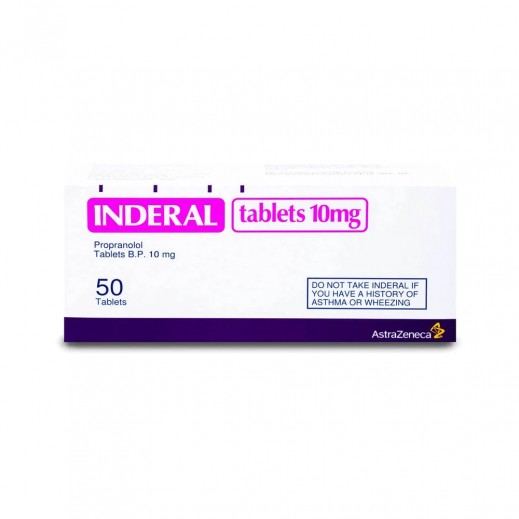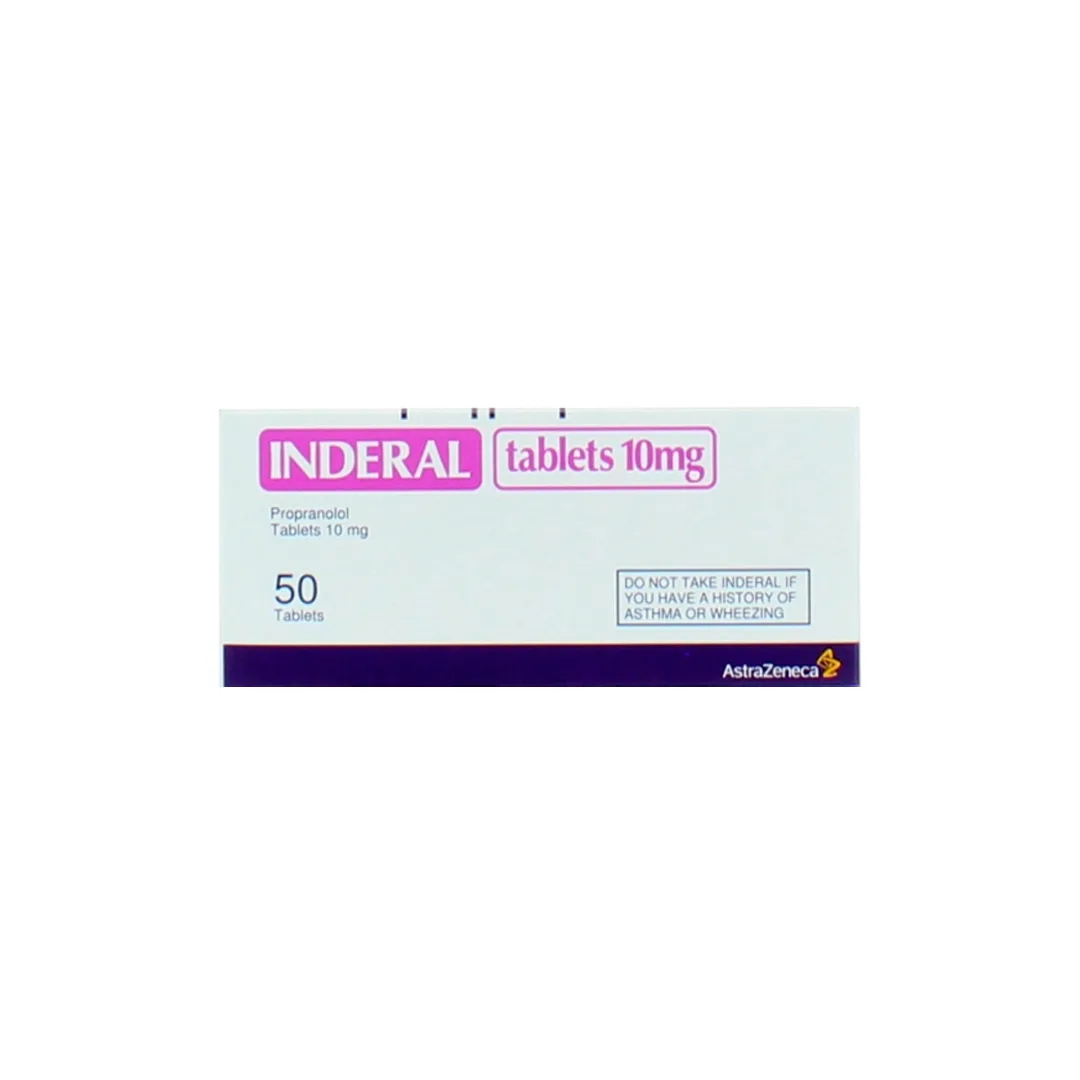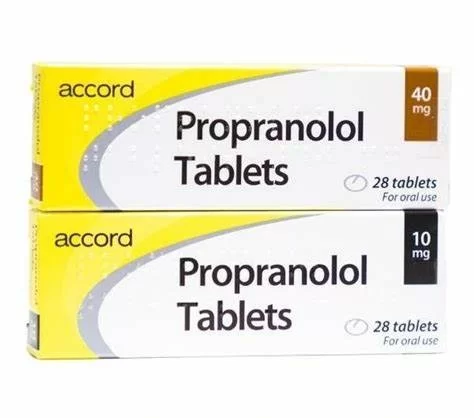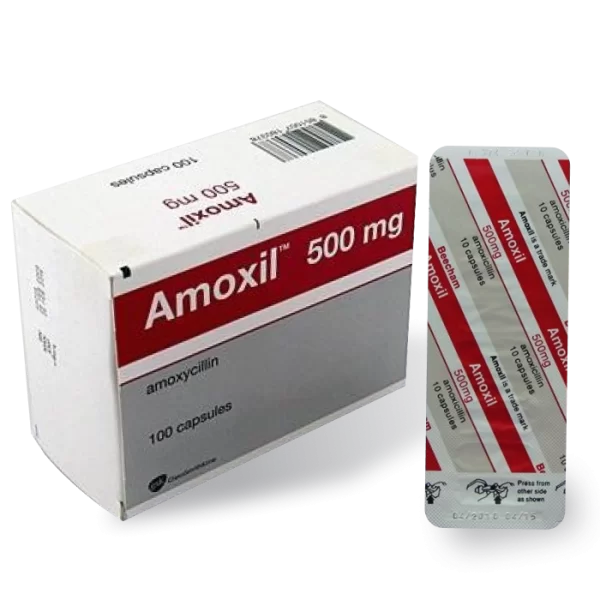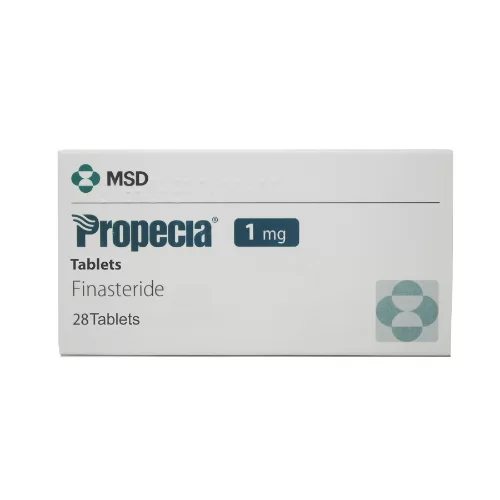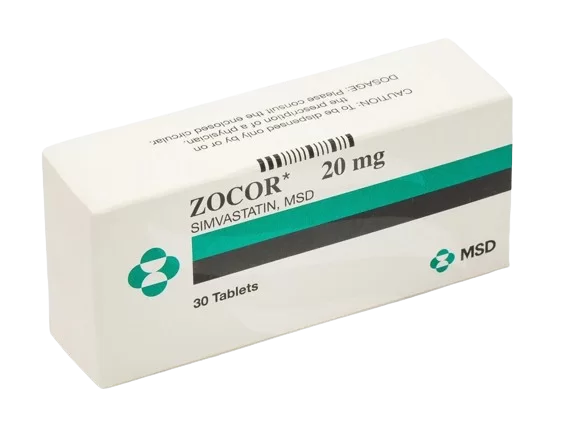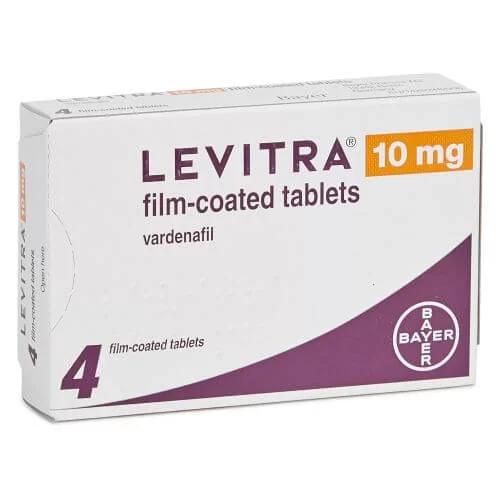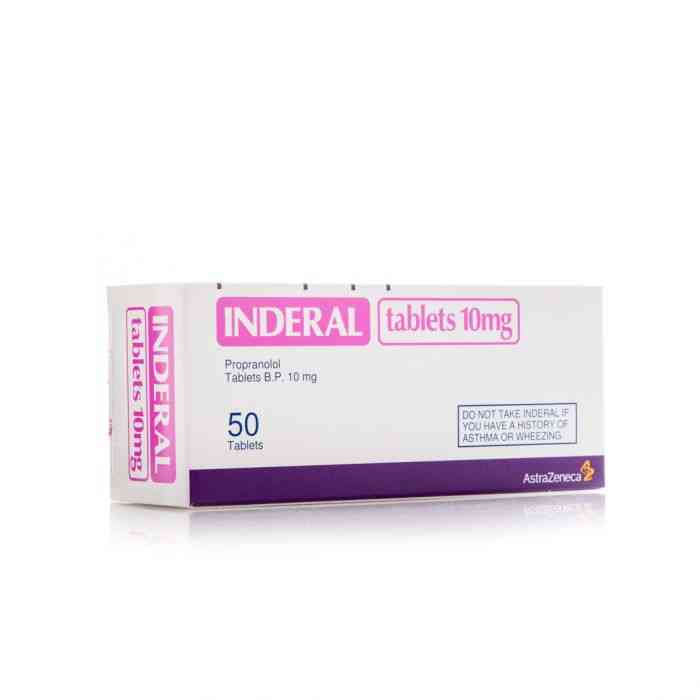
Inderal
Inderal - 80mg
| Product | Per Pill | Savings | Per Pack | Order |
|---|---|---|---|---|
| 60 pills | $0.73 | $43.89 | Buy Now | |
| 90 pills | $0.59 | $13.17 | $65.84 $52.67 | Buy Now |
| 120 pills | $0.51 | $26.33 | $87.78 $61.45 | Buy Now |
| 180 pills | $0.44 | $52.67 | $131.67 $79.00 | Buy Now |
| 270 pills | $0.39 | $92.17 | $197.51 $105.34 | Buy Now |
| 360 pills | $0.37 | $131.67 | $263.34 $131.67 | Buy Now |
Inderal - 40mg
| Product | Per Pill | Savings | Per Pack | Order |
|---|---|---|---|---|
| 90 pills | $0.56 | $50.03 | Buy Now | |
| 180 pills | $0.38 | $32.02 | $100.07 $68.05 | Buy Now |
| 270 pills | $0.32 | $64.04 | $150.10 $86.06 | Buy Now |
| 360 pills | $0.29 | $96.07 | $200.14 $104.07 | Buy Now |
Inderal - 10mg
Overview of Inderal
General Introduction to Inderal
Inderal, scientifically known as propranolol, is a beta-blocker widely used in the medical field to treat various conditions. These include hypertension (high blood pressure), angina (chest pain), and arrhythmias (irregular heartbeats). Additionally, Inderal is effective in preventing migraines and managing anxiety disorders. Available in multiple forms such as tablets, extended-release capsules, and oral solutions, Inderal offers versatility to meet different patient needs.
Key Benefits and Unique Properties of Inderal
Inderal’s primary mechanism involves blocking beta-adrenergic receptors in the heart. This action helps reduce heart rate, decrease the force of cardiac contractions, and lower blood pressure, making it particularly useful in managing cardiovascular conditions. Another unique feature of Inderal is its ability to cross the blood-brain barrier, enhancing its effectiveness in treating migraines and anxiety. Its broad applicability makes it a preferred choice for patients with multiple health issues, providing comprehensive management.
Effectiveness of Inderal
Clinical studies have consistently demonstrated Inderal’s effectiveness in lowering blood pressure and reducing the severity and frequency of angina attacks. For migraine prevention, patients often report a significant reduction in the number of migraine days per month. In managing anxiety, Inderal helps alleviate symptoms such as rapid heartbeat and tremors, providing substantial relief in stressful situations. The onset of action for immediate-release forms is typically within 1 to 2 hours, with effects lasting up to 12 hours.
Safety and Tolerability of Inderal
Inderal is generally well-tolerated. Common side effects include fatigue, dizziness, and gastrointestinal disturbances. Though rare, more serious side effects like bradycardia (slow heart rate) and hypotension (low blood pressure) may occur and require medical attention. Regular monitoring of heart rate and blood pressure is recommended to ensure safety during treatment. Most side effects are mild and resolve as the body adjusts to the medication.
Indications for Use of Inderal
Conditions Treated by Inderal
Inderal is prescribed for a range of cardiovascular conditions, including hypertension, angina, and arrhythmias. It is also utilized for migraine prophylaxis, management of essential tremor, and treatment of certain anxiety disorders. In some cases, Inderal is used off-label to treat conditions such as thyroid storm and pheochromocytoma.
Symptoms Indicating Use of Inderal
Typical candidates for Inderal are patients with high blood pressure, chest pain, or irregular heartbeats. It is also indicated for those suffering from frequent migraines or significant anxiety symptoms impacting their daily lives. Symptoms such as rapid heartbeat, excessive sweating, and tremors in anxiety disorders can be effectively managed with Inderal.
Dosage and Administration of Inderal
Recommended Dosage for Adults
For hypertension, the starting dose of Inderal is typically 40 mg twice daily, adjusted based on patient response and tolerance. For angina, the usual dose ranges from 80 to 320 mg per day, divided into multiple doses. For migraine prophylaxis, the recommended dose is 80 to 160 mg per day, divided into two or three doses.
Dosage for Children and Special Populations
In pediatric patients, the dose of Inderal varies depending on the condition being treated and the child's weight. For hypertension, the pediatric dosing typically starts at 1 to 2 mg/kg/day, divided into two or three doses. Elderly patients or those with renal or hepatic impairment may require lower doses to minimize the risk of side effects.
Timing and Method of Administration
Inderal should be taken consistently at the same time each day, with or without food, to maintain steady blood levels. Extended-release capsules should be swallowed whole, not crushed or chewed. Regular monitoring of blood pressure and heart rate is essential to adjust the dose as needed.
Pharmacological Action of Inderal
Mechanism of Action
Inderal is a non-selective beta-adrenergic receptor blocker that reduces the effects of adrenaline on the heart. By blocking these receptors, Inderal decreases heart rate, cardiac output, and the release of renin from the kidneys, leading to a reduction in blood pressure. This action is beneficial for managing hypertension, angina, and arrhythmias.
Biochemical Processes and Targets
Inderal primarily targets the beta-1 and beta-2 adrenergic receptors. Blocking these receptors prevents usual adrenergic responses, such as increased heart rate and force of contraction. This not only lowers blood pressure but also reduces oxygen demand by the heart, making it effective for treating angina.
Composition of Inderal
Active Ingredient
The active ingredient in Inderal is propranolol hydrochloride. Propranolol is a synthetic compound with the molecular formula C16H21NO2·HCl. It works by blocking the action of certain natural chemicals in the body that affect the heart and blood vessels.
Inactive Ingredients
Inactive ingredients in Inderal tablets may include lactose monohydrate, microcrystalline cellulose, pregelatinized starch, butylated hydroxyanisole, and magnesium stearate. These ingredients help in the stability, absorption, and overall effectiveness of the medication.
Side Effects of Inderal
Common Side Effects
Common side effects include fatigue, dizziness, lightheadedness, gastrointestinal disturbances (such as nausea, vomiting, and diarrhea), and sleep disturbances. These side effects are generally mild and temporary.
Rare and Serious Side Effects
Serious side effects are rare but can include bradycardia (slow heart rate), hypotension (low blood pressure), bronchospasm (in patients with asthma), and heart failure. Allergic reactions, such as rash, itching, and swelling, are also possible. Immediate medical attention is required if any serious side effects occur.
Frequency and Management of Side Effects
The frequency of side effects varies among patients, with most experiencing mild symptoms. Management includes regular monitoring and prompt communication with healthcare providers to adjust the dosage if necessary.
Prevention of Side Effects of Inderal
General Preventive Measures
To prevent side effects, patients should strictly follow the prescribed dosage and administration guidelines. Regular follow-up appointments are essential to monitor heart rate and blood pressure and to make any necessary adjustments.
Improving Tolerability
Patients can improve the tolerability of Inderal by taking the medication at the same time each day and maintaining a healthy lifestyle, including a balanced diet and regular exercise. Avoiding alcohol and smoking can also help reduce the risk of side effects.
Contraindications of Inderal
Conditions and Diseases Contraindicated with Inderal
Inderal is contraindicated in patients with asthma or other chronic respiratory diseases due to the risk of bronchospasm. It is also contraindicated in patients with bradycardia, severe heart block, and uncontrolled heart failure.
Specific Contraindications
Inderal should not be used in individuals with a known hypersensitivity to propranolol or any of its components. It is also contraindicated in patients with a history of severe allergic reactions, as beta-blockers can make it harder to treat an allergic reaction.
Warnings and Precautions for Inderal
Important Warnings
Patients should be aware of the potential for bradycardia and hypotension, especially at higher doses. It is crucial to monitor blood pressure and heart rate regularly. Patients with diabetes should be cautious, as Inderal can mask the symptoms of hypoglycemia.
Precautions for Safe Use
Before starting Inderal, a thorough medical evaluation is necessary. Patients should inform their healthcare providers about all medications they are taking to avoid potential interactions. It is also important to avoid abrupt discontinuation of Inderal, as this can lead to rebound hypertension and exacerbation of angina.
Missed Dose of Inderal
What to Do if a Dose is Missed
If a dose of Inderal is missed, it should be taken as soon as remembered. If it is almost time for the next dose, skip the missed dose and resume the regular dosing schedule. Do not take a double dose to make up for a missed one.
Tips for Avoiding Missed Doses
To avoid missing doses, patients can set reminders on their phones or use a pill organizer. Establishing a routine, such as taking Inderal at the same time each day, can help ensure regular intake. Communication with healthcare providers is essential if there are difficulties adhering to the regimen.
Drug Interactions with Inderal
Common Drug Interactions
Inderal can interact with various medications, including other beta-blockers, calcium channel blockers, and antiarrhythmics. It can also interact with medications used for mental health conditions, such as antidepressants and antipsychotics, as well as certain antibiotics and antifungals.
Managing Drug Interactions
Patients should provide a complete list of all medications, supplements, and herbal products they are taking to their healthcare provider. This allows the healthcare provider to assess potential interactions and adjust the medication regimen accordingly. It is important to follow the provider's recommendations and avoid starting or stopping any medication without prior consultation.
Overdose of Inderal
Symptoms of Overdose
Symptoms of an Inderal overdose may include severe dizziness, fainting, difficulty breathing, and extremely slow heart rate. In severe cases, overdose can lead to shock and cardiac arrest.
Immediate Actions and Medical Attention
In the event of a suspected overdose, immediate medical attention is required. Patients should call emergency services or go to the nearest emergency room. Activated charcoal may be administered in a clinical setting to help reduce the absorption of the drug. Supportive measures and symptomatic treatment will be provided based on the patient's condition.
Pharmacokinetics of Inderal
Absorption
Inderal is rapidly absorbed from the gastrointestinal tract, with peak plasma concentrations occurring within 1 to 4 hours after administration. The bioavailability of Inderal is about 25% due to extensive first-pass metabolism in the liver.
Distribution
Inderal is widely distributed throughout the body and is highly lipophilic, allowing it to cross the blood-brain barrier. It is approximately 90% bound to plasma proteins.
Metabolism
Inderal is extensively metabolized in the liver by the enzyme CYP2D6, and its metabolites are excreted in the urine. The primary active metabolite is 4-hydroxypropranolol.
Elimination
The elimination half-life of Inderal is approximately 3 to 6 hours. The drug is primarily excreted in the urine, with less than 1% excreted unchanged. The clearance of Inderal can be affected by liver function and concomitant use of other medications.
Dosage Forms of Inderal
Available Dosage Forms and Strengths
Inderal is available in tablet form in various strengths, including 10 mg, 20 mg, 40 mg, 60 mg, and 80 mg. It is also available in extended-release capsules (Inderal LA) in strengths of 60 mg, 80 mg, 120 mg, and 160 mg.
Advantages of Different Dosage Forms
The availability of multiple dosage forms and strengths allows for flexible and individualized treatment plans. Extended-release forms provide the convenience of once-daily dosing, which can improve adherence and maintain stable blood levels throughout the day.
Use of Inderal During Pregnancy and Breastfeeding
Safety During Pregnancy
Inderal is classified as a pregnancy category C drug, meaning that risk to the fetus cannot be ruled out. It should only be used during pregnancy if the potential benefits justify the potential risks. Inderal can cross the placenta and may affect fetal heart rate and blood sugar levels.
Use During Breastfeeding
Inderal is excreted in breast milk and may affect a nursing infant. The use of Inderal during breastfeeding should be carefully considered, and alternative treatments may be recommended. If Inderal is necessary, monitoring the infant for signs of beta-blockade, such as bradycardia and hypoglycemia, is essential.
Consultation with Healthcare Providers
Women who are pregnant, planning to become pregnant, or breastfeeding should consult their healthcare providers before starting Inderal. This consultation is essential to evaluate the potential risks and benefits and to explore alternative treatments if necessary.
Storage Conditions of Inderal
General Storage Recommendations
Inderal should be stored at room temperature, away from moisture, heat, and direct light. Keeping the medication in its original container with the lid tightly closed will help maintain its efficacy and safety.
Specific Storage Instructions
Store Inderal in a dry place, away from the bathroom or kitchen where humidity and temperature fluctuations are common. Ensure that the medication is kept out of reach of children and pets to prevent accidental ingestion.
Shelf Life and Handling After Opening
Check the expiration date on the packaging and do not use Inderal past this date. If the medication has changed in color, texture, or odor, consult your pharmacist before continuing use. Proper handling and storage after opening will ensure that Inderal remains effective throughout its shelf life.
